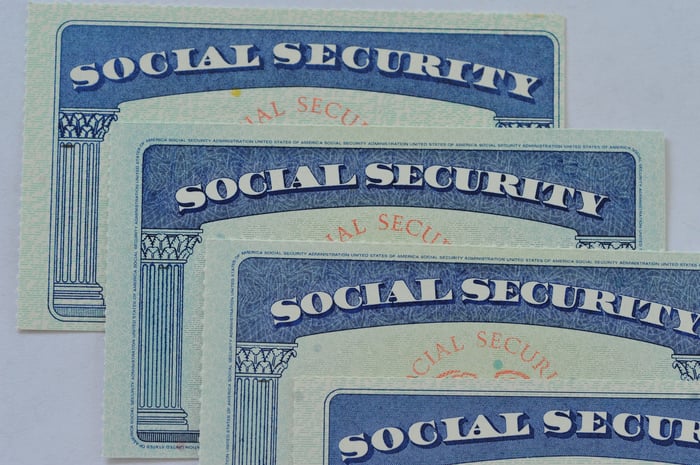Whether you're already collecting Social Security or hope to receive benefits later in life, you might not have thought much about how the program gets money to pay seniors. You should be concerned with at least one key Social Security cash source -- the program's trust funds. Once those funds run out of money, recipients could be in line for major benefit cuts. That's something you'll need to know.
How Social Security gets its money
Social Security's primary revenue source is payroll taxes -- the ones workers pay on their income. Each year, a wage cap determines how much tax workers will be liable for. This year, the wage cap sits at $142,800. It's worth noting that Joe Biden wants to reinstate Social Security taxes on wages above $400,000.
In the coming years, Social Security is expected to owe more money in benefits than it collects in payroll tax revenue. Baby boomers are expected to retire en masse, and there won't be enough replacement workers coming in to make up for their departure.

Image source: Getty Images.
When Social Security's benefit obligations exceed its incoming revenue, it can turn to its trust funds for help. Think of those trust funds as savings accounts of sorts. You may not always bring in enough money in your paychecks to cover your bills, but you can dip into your savings to make up for a shortfall. Social Security does the same. But what happens once your personal savings account runs out? The next time your paycheck doesn't cut it, you're in trouble.
Unfortunately, Social Security is in a similar predicament. The program's Trustees projected this past April that the Social Security trust funds would run out by 2035. At that point, Social Security may not have enough incoming payroll tax revenue to keep up with its obligations, and it also won't have its savings account. The program may have no choice but to implement substantial benefit cuts. That could, in turn, leave current Social Security recipients suddenly cash-strapped and put future beneficiaries at risk of meeting a similar fate.
Can benefit cuts be prevented?
Having millions of seniors plunge into poverty following benefit cuts isn't ideal. Lawmakers have been working to find a way to prevent that from happening. If Joe Biden's proposed payroll tax hike on higher earners goes through, it could generate a substantial amount of revenue for Social Security -- perhaps enough to avoid cutting benefits within the next 14 years.
But imposing a massive tax on the wealthy has consequences. Not only is it apt to be met with backlash, but many lawmakers won't support it. While Democrats now control the Senate, that doesn't guarantee they'll unanimously back Biden's tax initiatives.
If you rely on Social Security or plan to at any point, it pays to keep tabs on what's happening with the program's trust funds. Unfortunately, current recipients may not be in a position to do much to compensate for future benefit cuts. If you're still working, however, you have an opportunity to boost your personal cash reserves to make up for what could be a much lower retirement benefit. Stay informed so you know what action to take. While it's always a good idea to ramp up your savings, you may be even more inspired to do so once you see how Social Security is faring.




